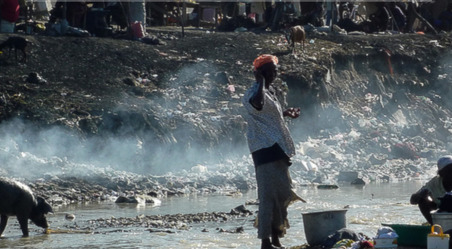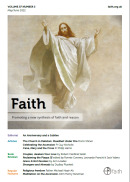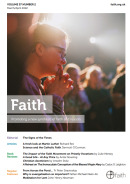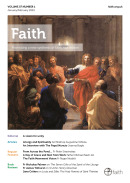Featured
Blessed are those who hunger and thirst after righteousness
Among some bleak translations and mistranslations of the Scriptures and the liturgy in the late 20th century, particularly poor was the use of "Happy are they . . . " in place of "Blessed . . . " for Christ’s glorious words in Matthew 5:3-11. "Happy" with its connotations of random good luck as in "perhaps" is no substitute for the beauty and beneficence of "Blessed" ...
Correspondence
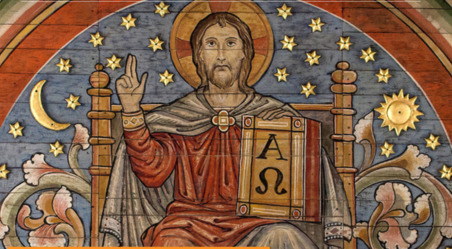
Dear Madam Editor,
Thank you for the very kind review of my book; I appreciate that.
I was a little surprised that Fr MacKenzie thinks that I divide reality into the (physically) value-less and the (spiritual) valued. I did not mean to convey that impression, but I have clearly done so! My actual view, as an Idealist, is that material or physical things are the expressions of spiritual reality, so I do not want to make an absolute gap between the two. I do think that cognising and valuing are intertwined, but I suppose they are abstractly distinguishable.
Diagnosing the Modern Mindset
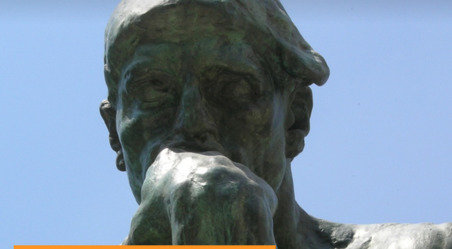
"Lord, what fools these mortals be!" According to Robin Goodfellow – Shakespeare’s fairy narrator – human behavior appears foolish from the outside looking in. The lovers of A Midsummer Night’s Dream chase after one another, each driven by their own desire, trying to have it align with another’s. As Shakespeare says elsewhere, "Love is blind." Love of this sort seems self-absorbed, random and uncertain. And unlike our plays, our lives often don’t end "happily ever after." But on the other hand, who of us can’t relate to this desire? We too are thirsty for connection, affirmation, and purpose.
The Human Person, Rational, Irreplaceable
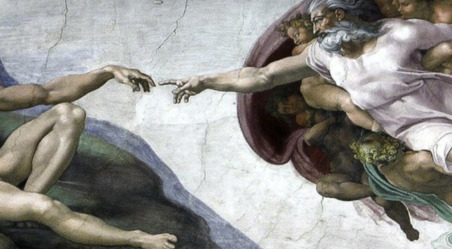
Achieving a deeper understanding the human person is becoming increasingly important in a culture that no longer recognises the inviolable dignity of every human being. Understanding the objective good that the human person is, through better understanding what the human person is—through his essential definition—we are better capacitated to act rightly in all our dealings with the human person, and so and so accord him his full and proper dignity.
Wisdom and Common Sense in Relationships

Recently a trio of Elders knocked on my door. They were very young Elders, but poised and smartly dressed. Remembering the warm hospitality that I received in Salt Lake City last October, I invited them in.
We often speak as though it is only marooned Catholics who fight the full defence of chastity in the modern world, but this is not the case. The Church of Latter Day Saints (LDS) is exemplary in promoting family values. Without them, the international fight for life and family would be a lot poorer.
Freedom for Christians
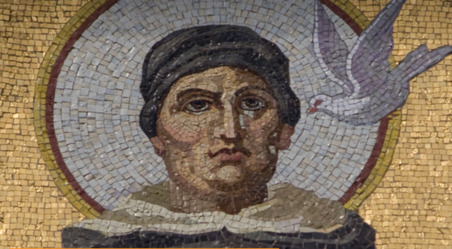
It was at university that I was drawn to the work of Christian Solidarity Worldwide (CSW), an ecumenical Christian charity working for religious freedom for all. The CSW motto is: "Pray, Protest, Provide".
My first foray into all this was in 1994 when, as a student, I travelled with Baroness Cox to the Armenian enclave of Nagorno Karabakh. The war-torn enclave had been decimated by conflict between Azerbaijan and Armenia in the early 1990s. Nagorno Karabakh had historically been part of ancient Armenia, but Stalin changed the boundaries in 1921, moving the territory into Azerbaijan. With the collapse of the Soviet Union, ethnic and territorial conflict erupted. Baroness Cox became a champion of the suffering Armenians of Nagorno Karabakh, travelling at the height of the war to bring humanitarian aid, and to document the atrocities and provide a voice in the outside world. She slept in bomb shelters and counted the grad rockets as they fell.
Interview: A Sense of Vigour and Hope
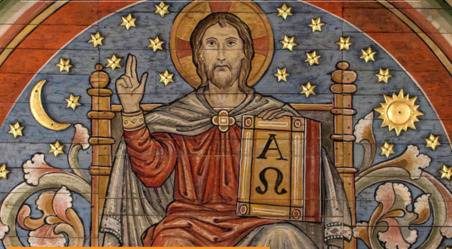
Wide green lawns, a large central chapel, hordes of young people hurrying down the corridors, a library with people silent at computers, a chattering refectory . . . and Francis Campbell walking with a greeting for everyone and an easy style as he collects a cup of coffee and settles for a chat.
Holloway on: Messiah and Unity-Law

It is said by some that the religion of the greatest sages of the East transcends, in its contemplative vision of God, the tradition of the Hebrews, at least until the writing of the ‘Wisdom’ literature some two hundred years or less before the birth of Christ. There seems no reason to concede this point.
Book Reviews: The Voice of African Catholicism

‘I have read God or Nothing with great spiritual profit, joy and gratitude . . . All that you have written regarding the centrality of God, the celebration of the liturgy, the moral life of Christians is especially relevant and profound.’ Not the opinion of your humble reviewer, but the words of Pope Emeritus Benedict XVI. With such an accolade, we appreciate that this is no ordinary work.
Book Reviews: Murky Money in the Vatican

Gianluigi Nuzzi and fellow journalist Emiliano Fittipaldi went on trial before three judges in the Vatican criminal court. They were not accused of falsifying facts, which the Vatican has not denied, but of "illicit behaviour in obtaining information and organized criminal association." This goes a long way to explain Pope Francis’ singularly blunt attacks on the Curia. The court eventually ruled that it had no jurisdiction over them since they were not citizens of the Vatican City.
Book Reviews: A Journey into Mystery

I have a problem with conversion stories. I have read hundreds of them and enjoyed the stories of the journeys and paths people take to find meaning and reality. The problems I have are twofold. The first problem is that being a bit of an inveterate researcher
Book Reviews: Translucent with Hope

Christianity has a vital message concerning the growth of human love. All Our Lord’s teachings confirm and deepen the immediate voice of conscience; they are the answer to our vital need to love and be loved.
-
Blessed are those who hunger and thirst after righteousness
Among some bleak translations and mistranslations of the Scriptures and the liturgy in the late 20th century, particularly poor was the use of "Happy are they . . . " in place of "Blessed . . . " for Christ’s glorious words in Matthew 5:3-11. "Happy" with its connotations of random good luck as in "perhaps" is no substitute for the beauty and beneficence of "Blessed"
In these last weeks of this Year of Mercy, the Church canonises one of the great figures of the modern era, a light in the Church in a confused time. She studied in Ireland, became a geography teacher in British India, and then answered a fresh call to work with the poorest of the poor. It was a BBC television feature presented by Malcolm Muggeridge that first brought Albanian-born Agnes Gonxha Bojaxhiu, to the attention of millions, although among Catholics she was already known. In September she will be given the formal title of Saint – but will probably always be known by the title through which she became famous: Mother Teresa of Calcutta.
Saints are those who "hunger and thirst after righteousness". We have heard much of the Beatitudes in this Year of Mercy. Too often they are presented in a rather sentimental way as a list of "positives" as against the "negatives" of the Ten Commandments. This is a popular theme for those who seek to emphasise that "the Church isn’t really so strict after all" and contrast the "Thou shalt not" of the Decalogue with a let’s-try-to-be-nice set of alternatives. But the Beatitudes do not really work that way. Rather, they are a portrayal of Christ, and a call to follow him. The God who spoke to us on Sinai with the Commandments then walked this earth: the Beatitudes describe him and are his call to us.
Righteousness has a rather dreary sound to modern ears, because it somehow makes us think of self-righteousness, the smug twitch of the mantilla, the faint air of moral superiority. But to hunger and thirst after righteousness is a great thing, a noble thing. The Jewish people erected a memorial in Israel to those "righteous among the nations" who, at risk of their own lives, helped Jewish people to escape the Holocaust. Such righteousness is not easy, nor, in the final analysis, optional: we are called on to do what good we can, or at least to strive to do so.
Often, in a standard biography of a saint, we read "after overcoming many difficulties and problems, he/she . . . ". The idea is so familiar that we tend to gloss over it, especially when we are young (middle age usually brings its own recognition of life’s hassles).
Fr Damien in Molokai had to struggle with bureaucratic difficulties, muddles, misunderstandings. It wasn’t just the horrors of Hansen’s Disease, it was the loneliness, the people at the missionary HQ who didn’t fully understand, the tensions with the Hawaian administration authorities…
Mother Mary McKillop founded schools for settler families in 19th century Australia and New Zealand . . . it wasn’t just the heat and hardships in rural New South Wales, it was problems with the Bishop, muddles over funding, complications about the status of her Order . . .
The writer of this Editorial can now claim to have met two real-life saints: St Teresa of Calcutta and St John Paul the Great, and to have mementoes of each. From Mother Teresa, a small tin Miraculous Medal, thin when first given and now worn thinner. From St John Paul: a signature on a new Bible held forward to him by the Editor’s spouse (against the finger-wagging of a monsignor who, quite rightly, objected to a Pope suddenly being urged to sign something without prior knowledge), cherished and kept in the office where FAITH editorials are written,
Mother Teresa’s work for the poor gained her acclaim, but it was actually living in personal poverty that made her convincing: the much-mended habit, the bleak living conditions, the absence of the small luxuries that make life in a stifling hot traffic-ridden city more endurable. Against fashionable opinion, she opposed contraception and abortion, and called for family prayers, and more reverence on receiving Communion, and when she spoke on these things it ensured that any praise for her work was matched by criticism and ridicule from those who opposed her.
St John Paul - whose feast we mark in October - was a much-televised figure and drew vast crowds on world pilgrimages. But his greatest achievements were against tough odds: the
Catechism of the Catholic Church succeeded through the heroic work of then-Cardinal Joseph Ratzinger and against the advice of many Bishops; World Youth Day flourished in the face of opposition from official diocesan youth-work bureaucacies. When he went to Fatima to give thanks for surviving the attempt on his life by an assassin, he was met by cheering crowds, but also by a stabbing from a Lefevbrist priest. When he opposed contraception and abortion he was denounced as a Polish bigot by most of the Western media.
Blessed are the meek . . . John Paul bent his will to the need to be courteous in the face of Communist antagonism. There was a vicious official campaign against the Polish Bishops in the 1960s when they initiated a letter to the German episcopate offering a message of healing and mutual forgiveness. There were deliberate bureaucratic delays and difficulties from the Communist government over the building of a church at Nowa Huta. All this was met with calm courage and a refusal to be roused to public anger or ranting. Blessed are the pure in heart . . St John Paul lived and taught the manly way of Christian love, presenting a whole fresh new approach to it in the "theology of the body", showing how our understanding of what it is to be male or female, makes sense in the fruitful love of matrimony.
It is the saints who live the Beatitudes. And saints can transform our world, or even just a small bit of it, so that a corner of Calcutta becomes a place where there is mercy, and purity of heart, and justice . . . or a Communist empire falls because of meekness and mercy and hungering and thirsting after righteousness.
We are often told – and FAITH magazine has played its own part in telling – about the problems of the modern Church. We have lived through confusing times, and they are not over yet: Mass attendance figures in Britain have been plunging for decades, along with figures for ordinations and for Catholic marriages. There has been no lack of comment on all of this – pamphlets and newsletters and then blogs and tweets and more – and no lack of meetings and protests and conferences and projects. And not all of this campaigning is without value. But during these decades, the Church was also producing saints, and they have been renewing the Church. That’s the way that God works.
It would be rather pompous to claim that the FAITH Movement is hungering and thirsting for righteousness but . . . well…that should at least be the aim. There will be plenty to ensure difficulties for us in the years ahead. We teach that marriage is the lifelong union of one man and one woman, establishing a new family – announcing that as a public official could bring formal penalties, and there may be members of FAITH who face that at some stage. We teach a synthesis of science and faith – and there will be plenty of opposition to that from militant atheists, possibly with attempts to prevent Catholics teaching it in schools and colleges. We announce, unequivocally, the fullness of truth as set out in the
Catechism of the Catholic Church – including the unfashionable words on sexual morality – that could make us unpopular with officialdom. Already there are concerns that materials promoting authentic marriage and its lifelong faithfulness may be banned from schools as they conflict with the somewhat oddly named "British values" announced by public bodies.
God sends us saints to show us how to live the Beatitudes with courage, examples for us to follow. The "Come, follow me" of Christ is echoed by the "Blessed are they . . . " to show us the way. Not always a particularly comfortable way, although often a surprisingly joyful one: Gonxha Bojaxhiu and Karol Wojtyla were both often seen smiling, laughing, and joyful.
Blessed are they who hunger and thirst for righteousness . . .


